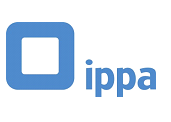'.$this -> html -> link($text, '/files/pages/' . $file['filename'], array('target' => '_blank', 'escape' => false)); } } ?>
Welcome!
Welcome to the IPPA Public Participation Toolbox!
The Participation Toolbox offers interested users the opportunity to identify one or more participation tools, methods or processes, depending on a range of search criteria, for use in stakeholder engagement activities associated with contentious issues. It is also possible to download short overviews of a number of Case Studies where tools have been used in real situations related to a range of contentious issues, including siting, construction and licensing of radioactive waste disposal facilities, expansion of airports and examination of the use of GM crops.
The tools, processes and methods are described in terms of a range of attributes, including the types of stakeholders involved, the frequency of their use, the phase in a decision-making process concerned, the level of participation required or proposed and what the objectives of the engagement are. References to further information and resources are also included. It is possible to compare up to 5 tools, methods or processes in order to assist interested users in their understanding of their suitability and to aid in their selection.
We would recommend new users of the Toolbox to take a few moments to consider exactly what it is they are looking for and hoping to achieve through their proposed participation process. In order to help with this we have outlined some Guiding Principles to bear in mind. There is also a HELP page to explain in more detail the functioning of the Toolbox.
For those more familiar with these Principles, click on the SEARCH link above to begin to explore the Toolbox.
Please note: The toolbox contains tools, methods and processes, but in order to increase the readability we sometimes use the term "tools" only. Our understanding of the differences between the terms is as follows:
- “Processes” include the use of different tools. Examples include Regional Dialogue Forum, Mediation, RISCOM and Local Partnership.
- “Tools” include Expert Group, Citizens Panel, Roundtables and Discussion Meetings. In the socio-scientific context tools can be anything from a rather complex instrument for including stakeholders to moderation tools such as the use of simple cards for brainstorming.
- “Methods” are tools which are described in the literature and where the specific design and precise methodology are fixed. Examples include Foundation Discussion Workshops, Focus Group and Consensus Conference.

